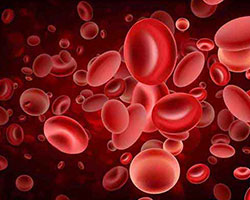Fanconi anemia is an inherited disease, caused by mutations in FA genes. These genes provide instructions to repair certain types of DNA damage in the human body. The cells of healthy people often repair DNA damage; however, cells affected by Fanconi anemia are not able to repair damages. The symptoms associated with the disease are decreased blood cell counts, bone problems, vitiligo, deafness, eye problems, short height, small head, small testicles and genital changes. The disease can be diagnosed by bone marrow biopsy, complete blood count test, hearing test, computed tomography (CT) scan and magnetic resonance imaging (MRI). The disease can be treated by growth factors, hormone therapy, antibiotics and blood transfusions. According to the data published by the National Organization for Rare Disorders, the incidence rate of Fanconi anemia is estimated to be around 1 in 136,000 births. This condition is more common among people of Ashkenazi Jewish descent, the Roma population of Spain, and black South Africans. Some of the major companies having therapeutic agents for the treatment of Fanconi's anemia in their pipeline include Elixirgen Therapeutics LLC, Abeona Therapeutics, Inc. and others. For instance, Abeona Therapeutics Inc. is in the process of developing ABO-301 gene therapy for the treatment of Fanconi anemia.
-
The report provides a comprehensive understanding of the pipeline activities covering all drug candidates under various stages of development, with the detailed analysis of pipeline and clinical trials.
-
Pipeline analysis of drugs by phases includes product description and development activities including information about clinical results, designations, collaborations, licensing, grants, technology, and others.
